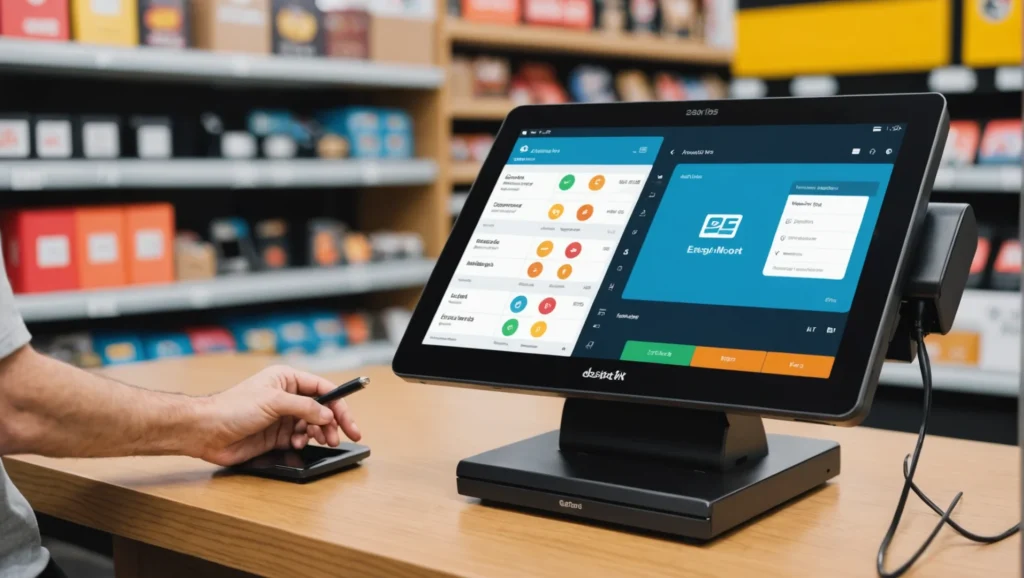On-Premise vs. Cloud POS: Which One Fits Your Business?

Choosing the right Point of Sale (POS) system can make or break the efficiency of your business. Among the most important decisions is whether to go with an on-premise POS or a cloud-based POS. Both systems serve the same purpose—processing transactions, managing inventory, and handling sales data—but they do so in fundamentally different ways.
In this blog, we’ll break down the differences between on-premise and cloud POS systems, their pros and cons, and help you decide which one is best for your business.
What Is an On-Premise POS?
An on-premise POS system stores all its software, data, and configurations locally—typically on a server located in your store. These systems have been around for decades and were once the standard for restaurants, retail shops, and grocery stores.
Key Features:
- Installed on-site
- Data stored locally
- Typically requires dedicated hardware
- Often a one-time license fee (with optional maintenance costs)
What Is a Cloud POS?
A cloud POS, also known as a web-based or SaaS (Software as a Service) POS, stores all data on remote servers. It is accessible via the internet on any compatible device such as a tablet, smartphone, or computer.
Key Features:
- Access from anywhere via internet
- Data stored in the cloud
- Usually a subscription-based model
- Regular updates and backups handled by the provider
Pros and Cons: On-Premise POS
✅ Pros:
- No dependency on internet – Your system continues running even if your internet goes down.
- More control over data – Data is stored locally, giving you full access and control.
- One-time cost – After the initial purchase, there are typically fewer recurring fees.
❌ Cons:
- High upfront cost – Buying hardware and software licenses can be expensive.
- Complex setup and maintenance – You may need IT support for installation, updates, and backups.
- Limited remote access – You can’t manage or monitor your business unless you’re physically on-site.
Pros and Cons: Cloud POS
✅ Pros:
- Access anytime, anywhere – View sales, inventory, and reports from any device with internet access.
- Automatic updates and backups – Stay up to date with the latest features and security patches.
- Scalability – Easily add new locations or registers with minimal effort.
- Lower upfront cost – Most providers charge a monthly subscription, making it more affordable initially.
❌ Cons:
- Internet dependent – If your connection goes down and the system doesn’t support offline mode, operations could be disrupted.
- Ongoing monthly fees – Over time, subscription costs may exceed the one-time cost of an on-premise system.
- Data privacy concerns – Although most providers are secure, some businesses prefer not to store sensitive data off-site.
Which One Fits Your Business?
Your choice between on-premise and cloud POS largely depends on your business type, budget, and operational needs.
Choose On-Premise POS If:
- You operate in a low-connectivity area and need a reliable offline solution.
- You want full control over your hardware and data security.
- You prefer a one-time investment over ongoing monthly fees.
- You have the IT resources to maintain and troubleshoot the system.
Choose Cloud POS If:
- You want to access data remotely from multiple locations or devices.
- Your business is scaling quickly and needs flexibility.
- You lack dedicated IT staff and prefer hands-off maintenance.
- You value frequent updates, customer support, and modern features like real-time analytics.
Hybrid Solutions: Best of Both Worlds?
Some cloud POS systems offer offline functionality, meaning they can still process transactions when the internet is down and sync data once it’s restored. These hybrid systems are gaining popularity as they combine the flexibility of cloud-based access with the reliability of local data storage during outages.
Final Thoughts
There’s no universal answer when it comes to choosing between on-premise and cloud POS systems—it all depends on what your business values most. If you prioritize control and offline stability, on-premise may be your best bet. If flexibility, ease of use, and remote access are more important, cloud POS is likely the better option.






